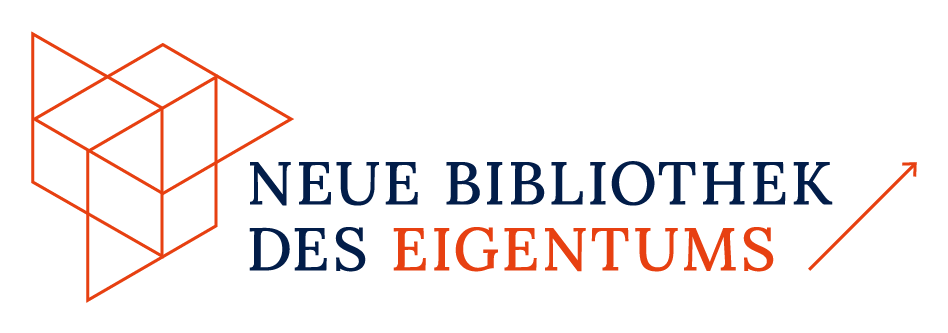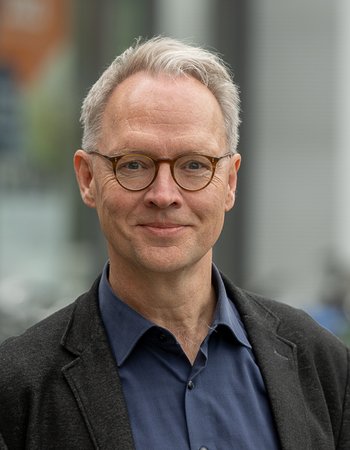The normative foundations of property: Digital property

Outline
However, this analytical link between property and individual freedom is neither conceptually imperative nor necessarily valid a priori. Within this perspective, norms related to the common good and sustainability inevitably appear as external constraints that regulate property only ex post facto: individual property rights are initially upheld and later constrained by moral norms of the common good and sustainability. In contrast, the project proposes that property inherently contains internal normative constraints that regulate it at its core. These intrinsic norms reside within property itself. Thus, the justification of property includes not only the reasons that justify freedom of property, but also those that allow for intrinsic normative limits.
During the first funding phase, these intrinsic property norms were elaborated through conceptual reflections and concrete examples related to ecological sustainability, demonstrating the inherent norm of sustainability of property. In the second funding phase, the project will explore whether an inherent norm can also be demonstrated in the context of digitalization. Guided by the hypothesis that digital property - or digital ownership - embodies an inherent norm of the common good, the research will first argue that digital infrastructures constitute the objects of digital property. Then, it will explain why the normative foundations of property in digital infrastructures inherently include a norm of the common good. Finally, the project aims to clarify if and how this inherent norm of the common good manifests itself in concrete forms of communal and public ownership of digital infrastructures.
The structural transformation of property is thus examined from a dual research perspective: First, the project seeks to reconstruct existing, often implicit, notions of property underlying digitalization that predominantly emphasize individual private property. From this perspective, digitalization does not create an entirely new type of property that is fundamentally different from classical understandings, but rather represents a structural transformation that extends classical notions of individual private property to its digital form.
Second, the project develops an alternative understanding of property based on normative foundations, proposing that digital property is inherently limited by a norm of the common good. It aims to highlight the internal dynamics driving the structural transformation of property: by deriving alternative conceptions of property from the normative foundations of existing property rights themselves, these conceptions inherently possess the potential to shift towards communal and public ownership of digital infrastructures. This intrinsic dynamic of transformation will be detailed through concrete proposals for organizing social media platforms, artificial intelligence, and news portals as forms of public property.
Project Activities
Publications
Scientific publications
Monographs:
- Niklas Angebauer, Tilo Wesche (2025): Theorien des Eigentums zur Einführung, Junius, (forth.).
- Blumenfeld, Jacob (2024): The Concept of Property in Kant, Fichte, and Hegel, New York: Routledge.
- Wesche, Tilo (2023): Die Rechte der Natur. Vom nachhaltigen Eigentum, Berlin: Suhrkamp.
Edited volume:
- Wesche, T.; Angebauer, N.; Blumenfeld, J. (2024): Umkämpftes Eigentum. Aktuelle Debatten, Berlin: Suhrkamp, (forth.).
Articles:
- Blumenfeld, Jacob (2024): "Die Rückkehr der Eigentumsfrage. Zur Geschichte und Theorie der Vergesellschaftung", In: Wesche, T.; Angebauer, N.; Blumenfeld, J. (eds.): Umkämpftes Eigentum. Aktuelle Debatten, Berlin: Suhrkamp, (forth.).
- Blumenfeld, J.; Berfelde, R. (2024): “Von der Vergesellschaftung zur Planung und wieder zurück", In: Prokla 215 54 (2), 177-193, https://doi.org/10.32387/prokla.v54i215.2119.
- Schosser, Yann; Theis, Laura Bella (2024): “Freedom, Experience and Emancipation: A Pragmatistic Inquiry on the Practices of Relating to Land in North American History”, In: Sofia Bianchi Mancini, Helen A. Gibson, Dirk Schuck, & Markus Vinzent (eds.): Relating to Landed Property. Frankfurt am Main: Campus Verlag, 229-257.
- Wesche, Tilo (2024): “Vernünftige Freiheit. Ein unvollendetes Projekt”, In: Stefan Müller-Doohm, Smail Rapic, Tilo Wesche (eds.), Vernünftige Freiheit. Beiträge zum Spätwerk von Jürgen Habermas, Berlin: Suhrkamp, 161-193.
- Bandelin, S.; Esser, A. M. (2023): "Genossenschaften: Ergänzung, Korrektiv oder Alternative zu kapitalistischen Eigentumsformen", In: Zeitschrift für Wirtschafts- und Unternehmensethik, 24 (3), 288-308, https://doi.org/10.5771/1439-880x-2023-3-379.
- Blumenfeld, Jacob (2023): "The Freedom of Crime: Property, Theft and Recognition in Hegel’s System of Ethical Life“, In: British Journal for the History of Philosophy 31 (1), 103-126. DOI: 10.1080/09608788.2022.2148629.
- Wesche, Tilo (2023): "Eigentum“, In: Johannes J. Frühbauer, Michael Reder, Michael Roseneck, Thomas M. Schmidt (eds.), Rawls Handbuch. Leben – Werk – Wirkung, Berlin: Metzler, 225-228.
- Wesche, Tilo (2023): "Hölderlin über geistiges Eigentum“, In: Nilas Baratella, Peter Neumann, Malte Maria Unverzagt (eds.), Die Präsenz des Vergangenen, Paderborn: Brill/Fink, 19-224.
- Angebauer, Niklas (2022): "Democratising Property. The Case for Economic Democracy“, In: Paulina Fröhlich, Paul Jürgensen und Maxine Forwé (eds.), Innocracy Focus Paper. Democratising the Economy in an Era of Disordered Order.
- Angebauer, Niklas (2022): "Kein Eigentum ist auch keine Lösung. Was wir vom theoretischen Armutsstreit lernen können“, In: Jan Beuerbach, Kathrin Sonntag, Amelie Stuart (eds.), Der Stand der Dinge. Theorien der Aneignung und des Gebrauchs, Basel/Berlin: Schwabe.
- Blumenfeld, Jacob (2022): "Expropriation of the Expropriators“, In: Philosophy and Social Criticism 49 (4), 431-447. DOI: 10.1177/01914537211059513.
- Angebauer, N. & Habermann, T. (2021): "Wem gehört die Stadt? Eigentum in der Debatte um bezahlbares Wohnen“, In: Zeitschrift für Praktische Philosophie 8 (1), 307-336.: https://www.praktische-philosophie.org/zfpp/article/view/251/242.
Media and podcasts
- Blumenfeld, Jacob (2023): “What was socialization? A look back”, In: blog of the Collaborative Research Centre “Structural Change of Property”. (published 15.01.2023)
Lectures
- Yann Schosser & Maximilian Huschke: “The real villain of our age. Kant and Libertarianism”, lecture as part of the lecture series “Understanding Freedom. Challenges and Perspectives in a Liberal Society” at the HTWK Leipzig (26.06.2024)
- Tilo Wesche: "The Rights of Nature. On Sustainable Property“, Nelson Mandela University, Gqeberha/Südafrika, 27. März 2023.
- Tilo Wesche: "The Rights of Nature. A Challenge for Modernity, North-Western University, Potchefstroom/Südafrika, 24. März 2023.
- Yann Schosser: "A Pragmatistic Perspective on Propertized Bodies”, an der FU Berlin, as part of the workshop „Dimensions of Property in Reproductive Economies: Practices, Interpretations, and Discourses”, under direction of subproject C02. (17.02.2023)
- Tilo Wesche: "Dialektik der Naturverhältnisse“, Centre Marc Bloch Berlin, 27. Januar 2023.
- Tilo Wesche: "The Rights of Nature. On Sustainable Property“, Universidad de Antioquia, Medellin/Kolumbien, 22. November 2022.
- Tilo Wesche: "Wem gehört die Natur?“, Universität Oldenburg, 7. November 2022.
- Jacob Blumenfeld: "Sozialismus kommt von Sozialisierung - Kämpfe um Vergesellschaftung und Verstaatlichung in der ersten Hälfte des 20. Jahrhunderts", Presentation on the conference „Vergesellschaftung: Strategien für eine demokratische Wirtschaft“. (08.10.2022)
- Maximilian Huschke: "Revolution“, as part of the series of lectures „Klassenzimmer“ at taz-lab 2022. (30.04.2022)
- Yann Schosser: "Klasse – Zum Verhältnis von Eigentum und Klasse bei Immanuel Kant“, am 30.04.2022 as part of the series of lectures „Klassenzimmer“ at taz-lab 2022. (30.04.2022)
- Maximilian Huschke: "Hegels Vergeistigung des Naturrechts im Begriff einer zweiten Natur. Rechtfertigung und Kritik des Kolonialismus.“, In Gotha, as part of the conference „Naturrecht und Eigentum“, under direction of subproject A03. (08.04.2022)
- Andrea Esser: comment: "Autonomie – Selbstbestimmung oder Selbstgesetzgebung?“, In Jena, as part of the workshops "A liberal Theory of Property“ mit Hanoch Dagan. (12.11.21)
Events
- Workshop “The Critique of Social Totality. On the Conception of Society in Critical Theory”, Friedrich Schiller University Jena. (02.-03.11.2023)
- Workshop “Contested Property”, University of Erfurt. (10.10.2023)
- Workshop with youth book project “Wem gehört die Welt? Wem gehöre ich?”.
- Organisation and implementation of the Dialograum Eigentum, in the context of the annual conference 2022 of the SFB. (04.-05.10.2022)
- Manuscript workshop “Die Rechte der Natur. Vom Nachhaltigen Eigentum”. (03.12.2021)
- Research retreat “Normative Eigentumstheorien” in Letschin (04.-07.11.2021)
- Workshop “Pragmatismus und Eigentum” in Jena (14.10.2021)
- Reading day “Eigentum im Pragmatismus” in Jena (22.07.2021)



